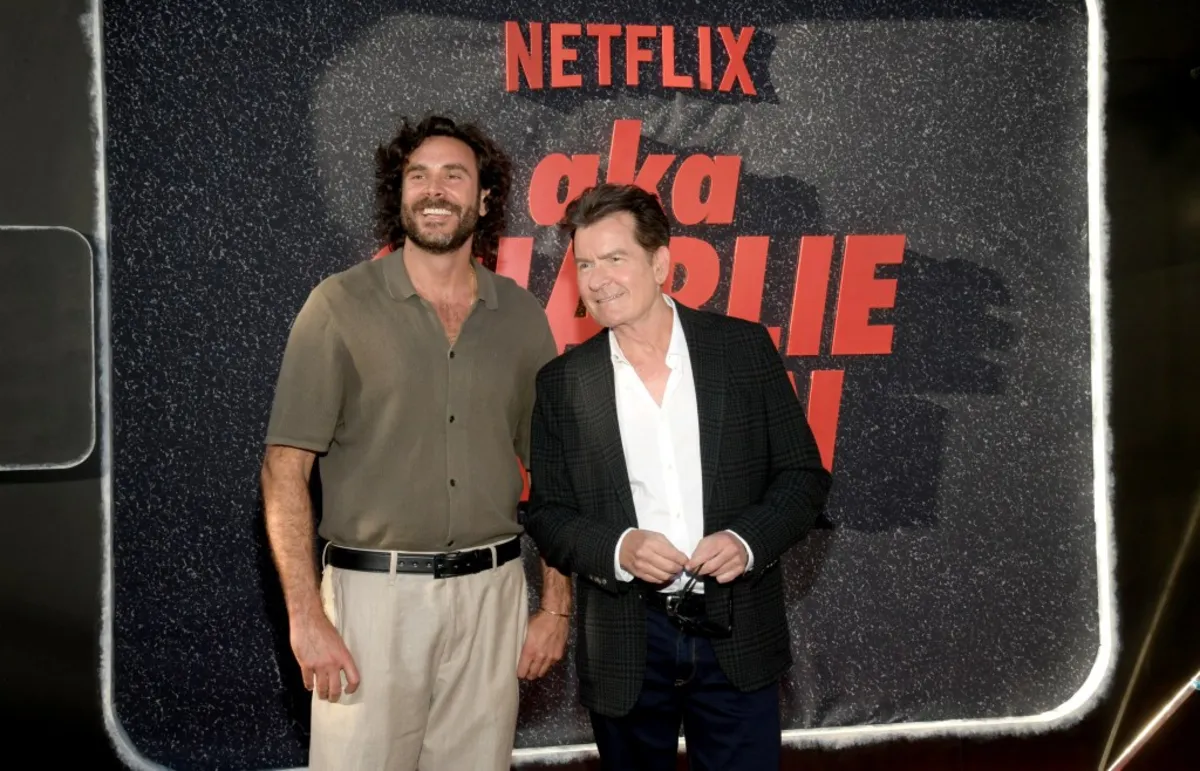
In the intriguing Netflix documentary titled aka Charlie Sheen, director Andrew Renzi, known for his work on Pepsi, Where’s My Jet?, expertly chronicles the tumultuous journey of actor Charlie Sheen. The documentary, which premiered on September 10, utilizes a rich tapestry of old family films, candid interviews with friends like Chris Tucker and Sean Penn, and a remarkable conversation with Sheen’s former drug dealer, Marco. However, the standout feature of this two-part documentary is Renzi’s captivating interviews with Sheen himself, providing an intimate look at the actor’s life.
Renzi expressed his commitment to creating a legacy piece for Sheen, stating, “I take it very seriously that I’m making something that ultimately creates a legacy piece for somebody.” He highlights the unique opportunity to work with Sheen, who had no editorial control over the project yet was comfortable enough to present an honest portrayal of himself. Renzi said, “This is the Charlie Sheen documentary, and there probably can’t be another one,” emphasizing the singular nature of this exploration into Sheen’s complex persona.
Renzi sheds light on the extensive development period of the documentary, which spanned approximately two years. “We spent about eight months to a year getting to know each other before we shot a frame of the film,” he explained, revealing the deep understanding that was necessary to tell Sheen’s story authentically. Renzi noted that he was only familiar with Sheen’s life as an eight-year sober individual, which was pivotal in shaping the narrative.
When asked about the title aka Charlie Sheen, Renzi elaborated on the significance of Sheen’s original name, Carlos Estevez. “Everyone has their own idea of who Charlie is,” Renzi stated, highlighting the provocative nature of the title as it reflects Sheen’s multifaceted identity. The decision to divide the documentary into two parts served a narrative purpose as well. “Part one feels like a romanticized version of what drug addiction can look like to a drug addict,” he explained. “Part two really peels back what it actually looks like to be in the depths of addiction.”
The documentary begins with the iconic Two and a Half Men theme, featuring Jon Cryer’s declaration, “I’m not here to build him up or tear him down.” Renzi chose this opening to ground the audience in Sheen’s most recognizable role while also addressing the complexities of his life. This approach sets the tone for the documentary, inviting viewers to ponder whether it is a good or bad idea to revisit Sheen’s tumultuous past.
One of the most striking anecdotes shared in the documentary involves Sheen flying a plane while intoxicated on his honeymoon. Renzi found this moment emblematic of Sheen’s reckless lifestyle, encapsulating the paradox of power and danger that defined his celebrity status. “If anyone ever had any questions about why a guy didn’t get sober sooner, there’s your answer,” Renzi remarked.
The documentary is enriched by a treasure trove of super 8 family footage that Renzi discovered, which had been largely unseen. “His sister was the family archivist and quite literally just had a box of undeveloped film,” he explained. This footage allows viewers to see Sheen’s directorial efforts as a child, creating a poignant contrast with his later life.
Renzi also explores Sheen’s friendships, notably with Nicolas Cage, whom he describes as a critical influence during Sheen’s rise to fame. “That union, that sort of unholy union, was pretty cool,” Renzi noted, illustrating how Cage’s lifestyle mirrored Sheen’s own behaviors. Additionally, the documentary features an extraordinary interview with Marco, Sheen’s former drug dealer, who revealed insights into Sheen’s struggles with addiction, adding depth to the narrative.
One of the most emotional moments captured in the documentary is when Sheen reflected on his firing from Two and a Half Men. Renzi described the experience of watching Sheen confront his past as unique and poignant, as it highlighted the actor’s struggles with shame and accountability. “I think shame is a thing that will haunt anybody who has experiences they’re not proud of,” Renzi said, emphasizing Sheen’s journey towards self-acceptance.
Interestingly, neither Martin Sheen nor Emilio Estevez participated in the documentary, a decision Renzi respected. “It was because of the love they all have for each other,” he explained, underscoring the familial bond that exists despite the challenges they faced. Renzi noted that Martin felt it was Charlie’s moment to share his story, which speaks volumes about their relationship.
As the documentary unfolds, Renzi examines whether Sheen can fully articulate the reasons behind his addiction. He believes Sheen represents a significant figure in the conversation around addiction, having navigated the depths of his struggles. “This is a person who’s honest, who maybe isn’t going to give everybody what they want, but he’s here and he’s present,” Renzi concluded, attesting to the sincerity of Sheen’s journey towards recovery.
Overall, aka Charlie Sheen offers an insightful and raw portrayal of a complex individual, inviting viewers to reflect on the nuances of fame, addiction, and personal redemption.